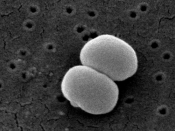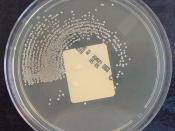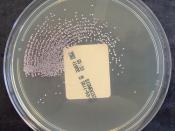Iosif Secasan
Department of Urologic Surgery
Spitalul Judetean Resita / The Hospital of Resita
RO-1700, Resita, Romania
George Secasan
Department of Law / University of Timisoara / and of
Spitalul Judetean Resita / The Hospital of Resita
RO-1700, Resita , Romania
Dan I. Pop
Data International SRL
Str. Horia, Nr.6, Bl.6, Et.10, Ap.39
Resita-1700, RO-1700, Romania
Phone: 0040-722-940299 , E-mail : danpop77@yahoo.com
Ciprian C. Secasan
Department of Microbiology / Department of Urologic Surgery
Spitalul Judetean Resita / The Hospital of Resita
RO-1700, Resita , Romania
Abstract
Purpose : Previously considered solely as the laboratory contaminants and normal flora of skin in man, coagulase negative Staphylococci are now a major cause of nosocomial and opportunistic infections. This article presents the various possible treatments of bacterial prostatitis caused by Staphylococcus epidermidis , which we consider a true pathogen , when found in the prostate.
Materials and Methods : The Internet has been used to find the relevant informations and the relatively few articles which have been published about the treatment of prostatitis caused by Staphylococcus Epidermidis.
The PubMed web-site : http://www.ncbi.nlm.nih.gov/entrez/query.fcgi has been particularly useful for this purpose.
Results : A number of potential treatments for bacterial prostatitis caused by Staphylococcus Epidermidis are presented. EpiVAXî (Staphylococcus epidermidis Conjugate Vaccine), an investigational vaccine in preclinical development for the prevention of S. epidermidis infections, will probably be used both as a vaccine in order to prevent S. epidermidis infections, and as a potential therapeutic vaccine to be administrated before onset of antibiotherapy.
Conclusions : Prostatitis caused by Staphylococcus Epidermidis and/or by other
coagulase - negative staphylococci should not be neglected or left untreated, since some potential treatments for this infection of the prostate exist and are available. Newly introduced or experimental drugs, such as streptogramins (quinupristin-dalfopristin), oxazolidinones (linezolid), carbapenems (LY 333328) (11), everninomicins (SCH...


